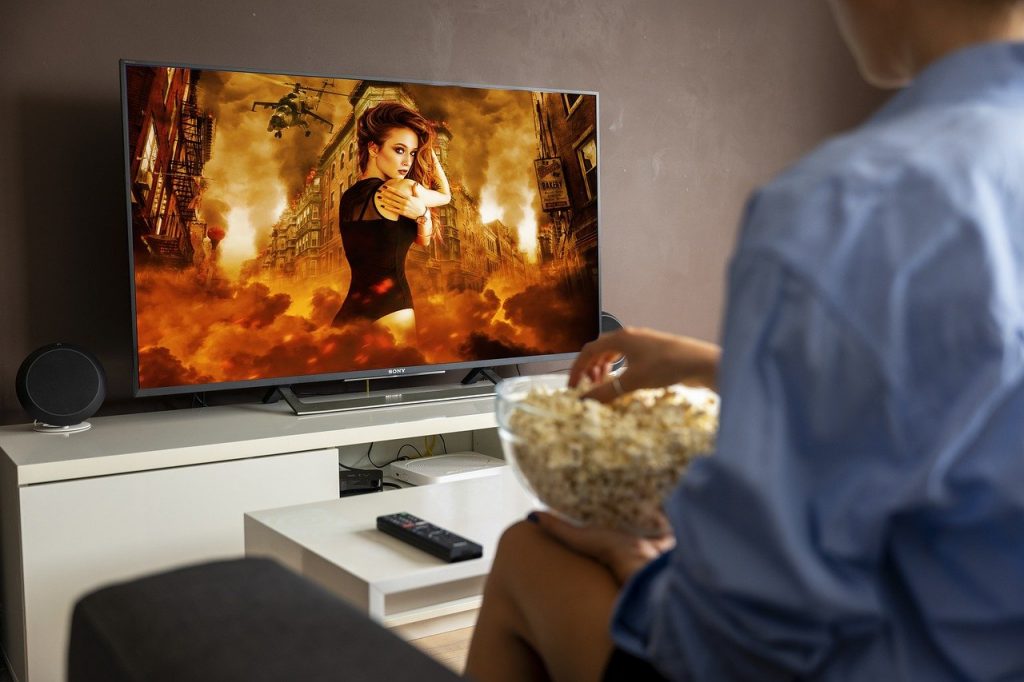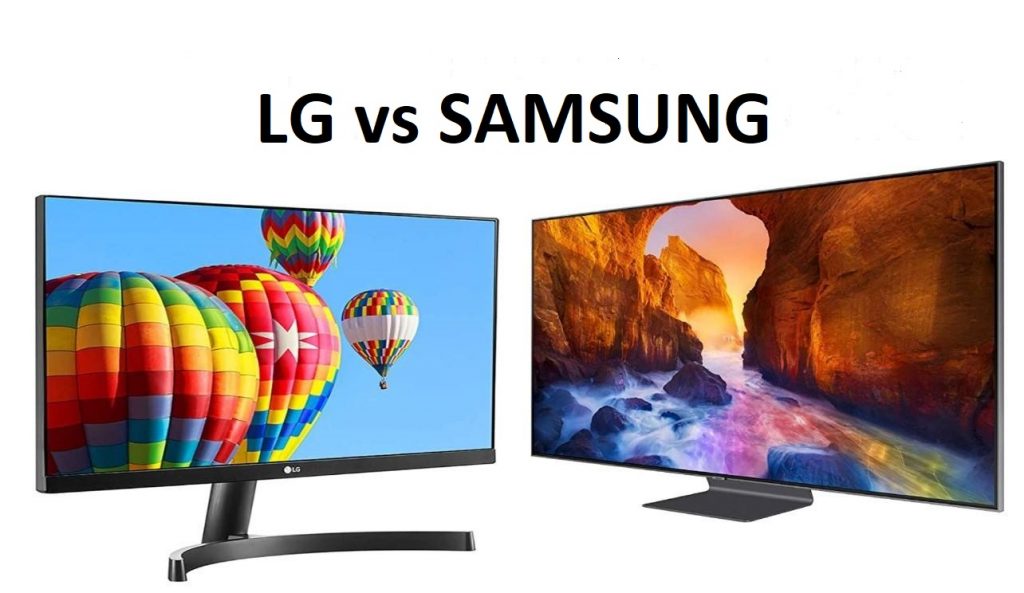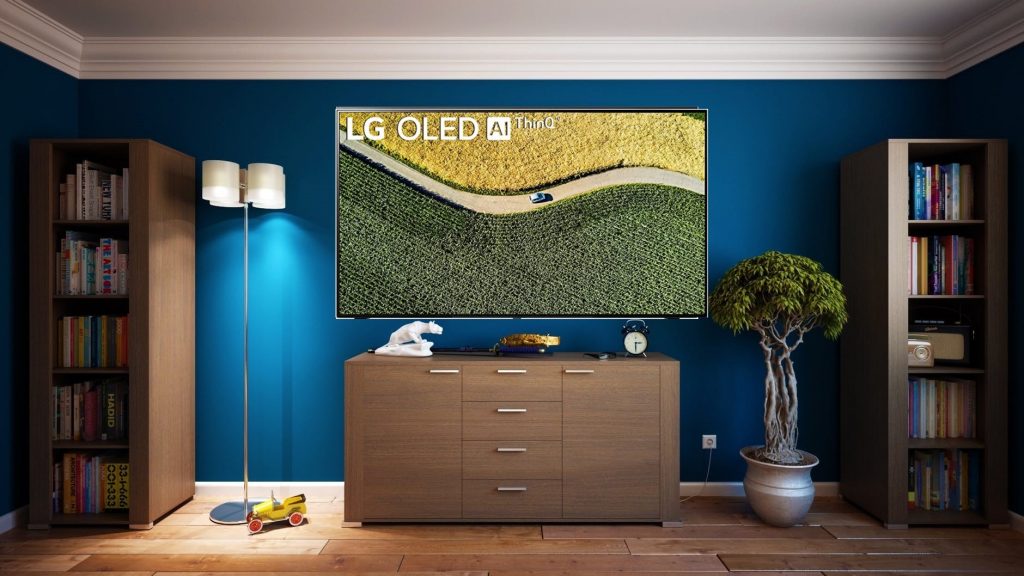
You’ve reached the right place if you’re trying to decide between a LG vs Samsung Tv. If you’re having trouble deciding between these two top TV brands, we have the knowledge and experience to assist you in making the best choice for your needs, budget, and – most particularly – tastes.
Every year, LG and Samsung introduce new smart TV models to the market. You can expect bigger screens, improved graphics, and reformed processors with each latest version, making for a wonderful new TV for your home. But, if you have to pick between LG and Samsung TVs (two of the best TV manufacturers on the planet), which one should you go with?
At first glance, most high-end televisions from companies like Samsung and LG look remarkably similar. Sure, some are likely to be larger or thinner than others, with minor variations in power and features, but distinguishing between two versions is also difficult.
However, this has recently changed, and LG and Samsung both have developed with new form factors for their high-end TVs, making some of their more costly models stand out from the competition.
Even if you weigh the advantages and disadvantages of both Samsung and LG’s new television sets, it can be difficult to determine what really distinguishes one from the other.
Table of Contents
LG vs Samsung TV : Overview

LG and Samsung are two major electronics companies with headquarters in South Korea. Both companies’ industries revolve around televisions, and both have good reputations in the United Kingdom, the United States, and elsewhere.
LG and Samsung, for example, increased their combined TV market share to over 60% in North America in 2019.
What is the key to their success? Each and every customer’s needs are met. Samsung and LG deliver a wide range of sizes and resolutions to fit any budget, whether you want a low-cost 43in LCD TV, a high-end 65in 4K HDR display, or even a next-generation 8K TV.
LG’s premium OLED TVs come in sizes ranging from 48 inches to 88 inches. However, there are plenty of more affordable choices, such as 43-inch 4K TVs and the company’s NanoCell LCD line.
Samsung’s moderate QLED TVs come in sizes ranging from 49 to 82 inches. However, a five-star budget 43in Samsung LCD TV is available.
Also Checkout…
What is NanoCell TV? NanoCell vs OLED vs QLED : Which is Better?
Smart TV Buying Guide | How to Choose the Best Smart TV?
Best Streaming Devices For TV in India 2021
Best Media Streaming Devices Buying Guide
OLED vs QLED

Is it better to use organic LEDs or quantum LEDs? Although the technological jargon surrounding premium televisions can be perplexing, it’s important to understand the main distinctions between these cutting-edge technologies.
OLED (organic light emitting diode) is a type of television panel that can emit its own light rather than letting light shine through it. This allows for brilliantly thin TV screens as well as the regulation of individual pixel brightness. OLEDs are distinguished by their vivid colours, deep black levels, and comparatively low brightness.
There’s a lot of talk about OLED screens ‘burning in’ videos, but much of it is anecdotal, and you’d have to be working the set really hard for this to become an issue.
LG Display manufactures all OLED panels, so even if you have a Sony OLED in your house, LG is to thank.
QLED, however, is a Samsung-developed patented technology. To improve colour and contrast, QLED uses a quantum dot filter, and to adjust brightness across the screen, it relies on a number of dimming zones rather than each pixel individually.
QLED TVs are also much brighter than OLED TVs (thousands of nits versus hundreds), but they fail to display both light and dark images as effectively as OLED Tvs.
We go into more depth about this discussion in our QLED vs OLED guide, but for now, suffice it to say that OLED is better suited to high-quality video formats in dark viewing environments, while Samsung’s sets have a lower contrast ratio (compared to OLED) but make up for it with a bright and impactful display.
Both technologies are constantly evolving. While some people complain that OLEDs have a lower brightness than QLEDs, LG’s new light sensor feature is designed to adjust brightness and picture settings based on the amount of ambient light in the room. Samsung, too, stepped up its game in 2019 with the introduction of its latest Ultra Viewing Angle technology.
So, OLED or QLED, which is better? We prefer Samsung’s QLED TVs because they are punchier and more complex, but LG’s are more realistic and authentic. Both are thrilling, and each has its own set of strengths; there isn’t much to choose between them.
webOS vs Tizen

Both Samsung and LG have their own smart TV platforms, each with its own distinct flavour.
Since 2014, LG has been the market leader with webOS, a minimalist, stripped-down smart TV interface. LG’s webOS design with a horizontal menu bar is bright and colourful, and a row of streaming content.
Even if you’re a techie, you’ll find it easy to use, and it won’t get in the way of the action on video. You can also add your favourite apps and also most-watched channels to the bar.
Many of the big streaming applications are available on LG’s webOS, including Netflix, Amazon Prime Video, and (in the case of 2019 models) the Apple TV app. Premium LG TVs also come with the Magic Remote, which helps you to power the TV by clicking, scrolling, or waving your hand.
While LG’s webOS is excellent, Samsung’s Tizen is now even better. It’s only a little faster and more intuitive, and it includes even more apps, such as BT Sport and Tidal.
Netflix, Amazon, Apple TV, and YouTube are all available, as are 4K and HDR content from all of the UK’s major terrestrial broadcasters, as well as catch-up TV from all of the UK’s major terrestrial broadcasters.
What about voice assistants, though? LG’s premium televisions come with Google Assistant pre-installed and minimal Alexa compatibility. But for the cheapest Samsung TVs, all come with the company’s patented Bixby assistant, which isn’t particularly smart. However, third-party devices can be used to use Google Assistant or Alexa.
Dolby Vision vs HDR 10+
LG and Samsung have backed separate formats in the HDR race in order to take picture quality to the next level. Dolby Vision is supported by LG’s premium LCD and OLED TVs, while HDR10+ is supported by Samsung’s high-end sets.
Both formats improve the picture’s dynamic range, enhancing the contrast between the brightest whites and the deepest blacks. The aim is for the on-screen action to look more realistic.
LG supports Dolby Vision and HDR10, while Samsung has produced its own HDR10+ standard. It enhances images frame by frame, similar to Dolby Vision, allowing subtle changes to the scene. However, while Dolby Vision has a 12-bit colour gamut and a brightness of 10,000 nits, HDR10+ only has a 10-bit colour gamut and a brightness of 4,000 nits.
Dolby Vision is also the most commonly used format. Amazon Prime Video has HDR10+ movies, but Netflix and Apple TV don’t. If you’re thinking of buying an OLED or QLED TV, consider which streaming services you use the most, as well as which HDR formats they support.
Also Checkout…
What is NanoCell TV? NanoCell vs OLED vs QLED : Which is Better?
Smart TV Buying Guide | How to Choose the Best Smart TV?
Best Streaming Devices For TV in India 2021
Best Media Streaming Devices Buying Guide
LG vs Samsung TV 4k : Which One Should You Choose?
When it comes to 4K televisions, the two brands aren’t far apart in terms of consistency. However, although one is slowly improving, the other is very much a case of peaks and valleys.
We will see which brand has consistently outperformed the other when it comes to 4K TVs, as well as Full HD and HD-ready TVs.
If you have a sufficient budget, we recommend the LG C9 65 in OLED TV, which has the best performance-per-pound of any OLED TV we’ve reviewed. It comes in two sizes: 55 in to 77 in, and all have incredible colours, deep blacks, and a razor-thin panel.
The LG B9, which is more affordable, has all of the advantages of OLED but is driven by the company’s 2018 processor. If you’re watching in 4K or upscaling from HD, it delivers a natural, colourful frame.
If sound quality is important to you, the LG CX has AI Acoustic Tuning, which, in addition to Dolby Atmos, allows you to hear scenes with all of the details.
For your ultimate viewing convenience, this Samsung Q95T 4K Smart QLED TV has has precision-controlled backlights display. This screen’s Aspect Ratio is 16:09 to meet current requirements, and it consumes 200 W of power (when running).
If you’re looking for the best of Samsung’s QLED TVs, look no further than the Samsung QA75Q70, an outstanding QLED TV with wide Color Enhancer and stunning levels of auto-adjusting brightness.
The Samsung UA50TU7200 ultra HD, which is more affordable, is one of the best all-rounders available at 50 inches. It reproduces Dolby Digital Plus sound as well as the vibrancy and range of colours. Is it too small? the 65 inches QA65Q90 is equally impressive.
Final Thoughts on LG vs SAMSUNG TV
The final and most important decision is based on your personal preferences and the amount of money you are able to spend on a television. The debate between Samsung and LG televisions has no definite winner; each has its own set of advantages and disadvantages. Samsung has a bright display and good tone, while LG has a clearer display and a smoother operating system.
The amount of time you are able to wait also influences whether you can purchase a Samsung TV or the latest LG OLED TV. Both Samsung and LG are working on groundbreaking technologies that will be well worth the wait. If you want a TV for everyday use at a low price, the Samsung N series is a good option. The LG C9, on the other hand, offers a much greater colour selection for a slightly higher price.
Also Checkout…
What is NanoCell TV? NanoCell vs OLED vs QLED : Which is Better?
Smart TV Buying Guide | How to Choose the Best Smart TV?
Best Streaming Devices For TV in India 2021
Best Media Streaming Devices Buying Guide
Popular LG TVs….
Popular SAMSUNG TVs….

Pingback: What is Refresh Rate in Tv? 60Hz vs 120Hz Tv and More | TechnOmipro
Pingback: HP vs Lenovo Laptops – Which Brand is Best in 2021? | TechnOmipro